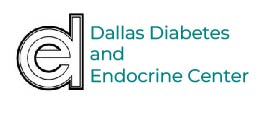- About Us
- Meet the Team
- Locations
-
Patient Resources
-
-
Patient Information
-
Patient Information
-
-
- Services
Proudly Part of Privia Health

Diabetes and Driving
Millions of Americans carry a diagnosis of diabetes, and a majority of them depend upon driving for local transportation for both work and leisure. Hypoglycemia (low blood sugar) can cause significant impairment of mental processing and judgement. Patients with type I diabetes are at highest risk for hypoglycemic events, and studies have shown that although some patients with diabetes do not "feel" a low blood sugar, their ability to drive in this state is significantly impaired. In addition, advanced diabetes in any individual can significantly impact a person's vision and other senses.
There has been a considerable amount of debate regarding safety issues surrounding drivers with diabetes. Let's try to sort out some of the important information:
How will the license office know I have diabetes?
In most states, drivers applying for a license are asked directly if they have diabetes, or are required to self-identify if they have diabetes. Alternatively, some states ask if the applicant has a condition that is likely to cause altered perception or loss of consciousness while driving (ie: diabetes, seizure disorder, etc).
Who makes the rules?
People with diabetes are currently subject to a variety of licensing requirement and restrictions, depending upon the type of drivers license required (ie: commerical vs. private) and the state in which the person is applying. Commercial licensing (ie: school/city bus, trucking) is subject to significantly increased restrictions, and specifically interstate commercial traffic is subject to federal regulation. Personal licensing is regulated by each state and rules may vary widely, with each state taking its own approach to determine medical fitness for driving.
What do I need to do if I want to apply for a private drivers license?
- Carefully examine questions on your licensing application so that you answer them accurately.
- You may need to submit a medical evaluation--the extent of this evaluation and its impact on your ability to get a license depends greatly on your diabetes control and prior hypoglycemic events.
- If you have previously had a hypoglycemic event while driving, you will likely need to submit information addressing improved diabetes control since that event.
- You may need to take a vision test
What are the specific rules in Texas?
- On your drivers license application, you will be asked:
- If you have been diagnosed or treated for a condition that may affect your ability to operate a motor vehicle safely
- If you take insulin
- If you have ever had a seizure or episode of loss of consciousness
- If you take insulin or have experienced a loss of consciousness, you will likely need to submit a medical evaluation. You may be required to attend an interview and your application will be reviewed by the licensing agency. Some applications will be further reviewed by the licensing medical advisory board.
- Motor vehicle collisions associated with hypoglycemia are likely to lead to suspension of your driver's license. Reinstatement is a costly and time consuming process through the bureau's medical advisory board.
Is my doctor required by law to report my medical condition?
No, physicians do not have to report drivers with medical conditions that could affect their ability to drive.
If I can't get a license, what can I do for identification?
You can apply for an identification certificate. This can be obtained by individuals of any age.
I hope this was helpful!
If you have questions, you can contact the Texas drivers license customer service number at 512-424-2600.
Of course, our office is here to help you!
Remember: Good diabetes control is key to driving safely!
(Hurrah! Another good reason to keep your diabetes under control!)
